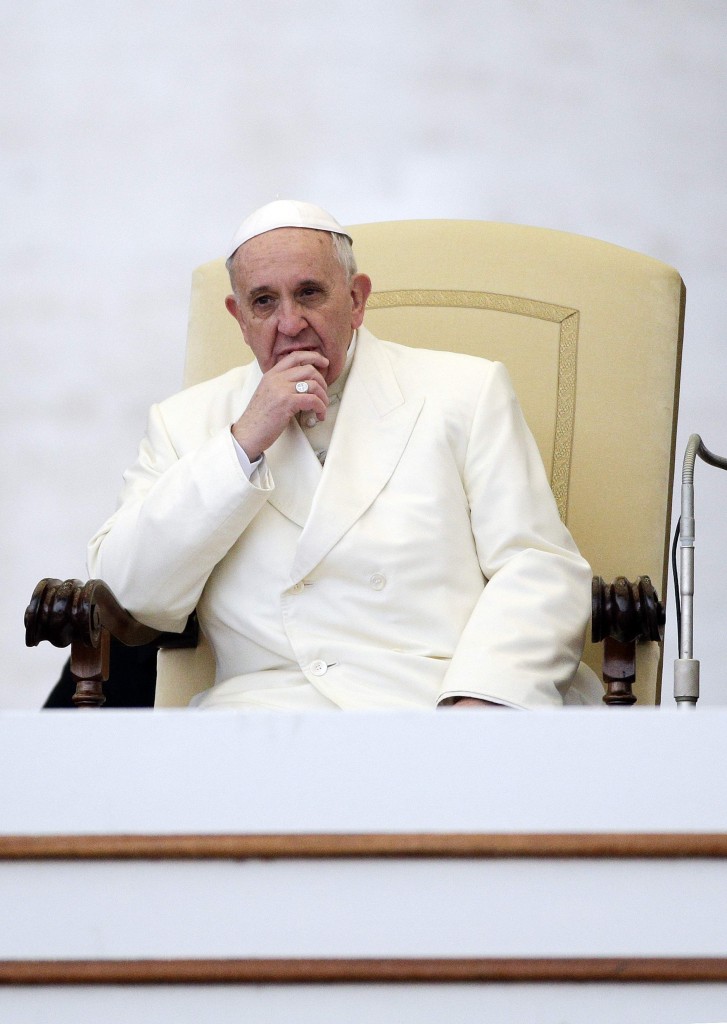Pontiff faces true test of credibility after scathing assessment of Church’s policies
BUENOS AIRES — By all accounts, Pope Francis has had a great 11 months since he was elected to lead the Catholic Church. He’s been praised for bringing “the papacy out of the palace and into the streets.” He’s been mobbed in St Peter’s Square and drew millions to the beaches of Copacabana on his first trip abroad as pontiff. He’s also, somewhat confusingly, been branded the first “gay-friendly” pope. He’s even appeared on the cover of Rolling Stone and been proclaimed “Person of the Year” by Time magazine.
But now he faces a new challenge: renewed criticism over the Church’s handling of the child sex abuse scandal which has scarred the Holy See over the past few decades. And he must act fast.
The UN commission didn’t go by their usual playbook yesterday. They were scathing in their assessment of the Church’s handling of child sex abuse cases, even going so far as to say the Church’s policies had allowed paedophile priests to continue their abuse.
The report stated that the Vatican had “systematically placed preservation of the reputation of the Church and the alleged offender over the protection of child victims.”
The Holy See was quick to adopt its usual defensive stance, dismissing the report as “distorted” and “unfair,” claiming its authors had failed to acknowledge steps taken over the past decade to protect children from abuse at the hands of clergymen.
“This committee has not rendered a good service to the United Nations,” Archbishop Silvano Tomasi, part of the Vatican’s UN delegation in Geneva, snappily told Vatican Radio.
The report “does not offer a correct or up-to-date picture of the situation,” he continued, adding that it was “a bit sad to see that the committee has not fully grasped the nature and functions of the Holy See.”
Criticism of the Church, and in some cases, the pope himself, quickly surfaced yesterday.
“This report gives hope to the hundreds of thousands of deeply wounded and still suffering clergy sex abuse victims across the world,” said Barbara Blaine, president of victims group, SNAP. “Now it’s up to secular officials to follow the UN’s lead and step in to safeguard the vulnerable because Catholic officials are either incapable or unwilling to do so.”
“If the pope is serious about turning the page on this scandal, he should immediately dismiss any bishop who oversaw a diocese in which a priest who abused children was shielded from the civil authorities,” said Jon O’Brien, president of the US lobby group Catholics for Choice.
There are some signs that Francis has recognized that child abuse allegations must be tackled. The pontiff held meetings in his first month leading the Church to address the issue, but it wasn’t until December that he announced the creation of a new committee focusing on abuse cases. He has asked them for new initiatives to handle the problem. But since then, few details have been released. Pressure groups, representing victims, have said the move is too little, too late.
The Argentine pontiff has spent much of his first year “in office” tackling other pressing issues, such as reforming the Church’s bloated bureaucracy and the Vatican Bank.
The report published yesterday, and the damning comments by the UN which accompanied its release, will now pile more pressure on the pontiff to act swiftly and take decisive action on this emotive issue.
Originally published in the Buenos Aires Herald, on Thursday, February 6, 2014.
Link: .
© J. GRAINGER, 2014

